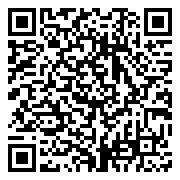

The Remote Site Control and Monitoring Training Course is designed to equip professionals with essential skills and knowledge to efficiently manage and monitor remote sites. With industries increasingly relying on remote site monitoring systems and remote management solutions, this course delivers a comprehensive understanding of remote control technologies, their applications, and their impact on productivity and security. Participants will learn how to leverage cutting-edge remote site monitoring equipment and master the control and monitoring process to optimize operations.
By attending this course, participants will be able to:
The Remote Site Control and Monitoring Training Course is the perfect opportunity to enhance your expertise in remote site monitoring systems and remote management. By mastering the latest remote control technologies, you can ensure the smooth operation, security, and efficiency of remote sites in any industry.
With practical applications, case studies, and hands-on exercises, this course prepares you to tackle real-world challenges while optimizing the control and monitoring process. Whether you're an industry professional looking to upgrade your skills or a beginner exploring what is remote site monitoring, this course provides the foundation for success.
Enroll today and take the first step toward becoming an expert in remote site control and monitoring!
